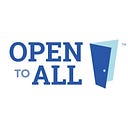#MeToo: Beyond Compliance
In the almost five years since #MeToo became synonymous with gender-based discrimination and sexual harassment, there has been a slew of initiatives in the workplace to address these inequities; sexual harassment training, leadership modules, and hiring plans for more women in managerial positions are just some of the practices that have become standard in recent years.
Yet, things haven’t changed much. Studies conducted in 2019 and 2020 show that 40% of women and 16% of men experience sexual harassment in the workplace, a number that has barely moved since the 1980s; in addition, even though instances of harassment may have decreased slightly, men have become hesitant to work closely with their female colleagues, limiting opportunities for women to grow professionally. While #MeToo has undoubtedly brought to light the ubiquity of gender-based discrimination, the response to it–both professionally and socially–has contributed to a culture that relies almost exclusively on reactive measures like reprimands, firings, and hirings rather than proactive measures that require self-examination, vulnerability, and community cultivation. In a presentation by Empathy Bootcamp founder Dr. Kelsey Crowe and award-winning cultural critic Dr. Laura Frost, Open to All® and corporate partners were treated to an in-depth discussion about how empathy can catalyze cultural change beyond the punitive measures of corporate compliance.
Laws and regulations do not change attitudes. Though they serve as a foundation for tangible action when a boundary is crossed, systems based solely on punishment can inspire a culture of paranoia. The focus becomes internal: How do I keep my job? How do I select the right phrases to “stay in line”? Business expenditures on internal programs show a similar focus on a person’s interiority. Self-management practices like compliance training and coaching receive larger investments than prosocial behaviors like diversity, equity, and inclusion; individual actions in following specific guidelines are given priority over community care. The very people that these regulations and training are meant to protect then become obstacles to overcome, rather than full human beings who are experiencing harm. To transform a punitive environment into an inclusive one, the baseline has to be genuine care and empathy for those we work with.
Empathy goes beyond niceness and platitudes. It’s a skill that has to be cultivated in the vulnerable work of listening well, a deceptively simple task. Hearing about upsetting situations can trigger a number of feelings within us. Anger, defensiveness, and even disbelief can be par for the course when we feel ill-equipped to handle someone else’s emotional distress. However, when these situations are approached from the perspective of trying to understand rather than trying to solve a problem or avoid a problem for ourselves, we can forge a genuine connection and support those who need it most. There is no standard way to be empathetic, but a great place to start is one simple question: “What’s that like for you?” Or even, “Are you ok?” By leading with curiosity, the door is left open for someone to share further and we are able to sincerely engage with and respect experiences that differ from our own. That care fosters an environment of trust as we decenter ourselves and recognize the complexity of others’ humanity.
Sexual harassment and other forms of gender-based bias are not the sole purview of women, just as #MeToo and the work it has inspired aren’t solely for women. Circumstances may differ, but this bias, just like all forms of discrimination, crosses lines of race, gender, class, sexual orientation, gender identity/expression, ability, and more. Everyone deserves to be treated respectfully, inside or outside their place of work. When we acknowledge our differences but decide to listen and care anyway, we can begin to build a healthy and equitable environment that allows us to embrace the totality of our humanity without caveats, doubts, or fear.
